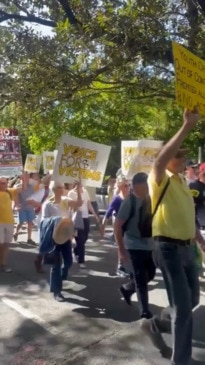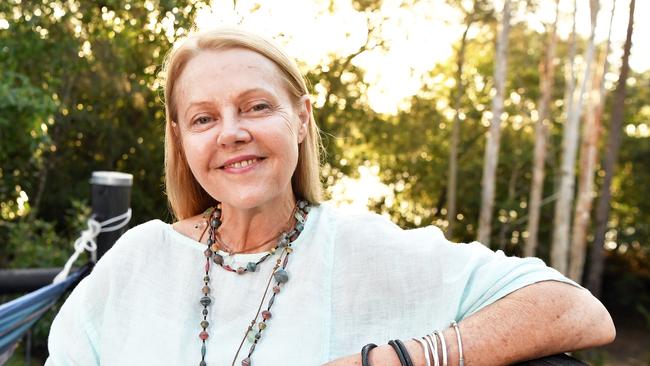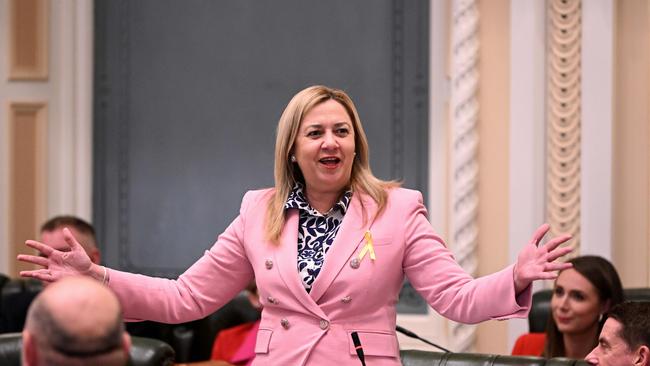‘Very complex issue’: Noosa MP Sandy Bolton to chair independent committee to investigate state’s youth crime crisis
A parliamentary committee will investigate the state’s youth crime crisis, but who will sit on it, how long they will have and what aspects they will look into is yet to be decided.

A parliamentary committee chaired by an independent MP will investigate Queensland’s struggles with youth crime.
But the details on who else will sit on the committee, how long they will have to delve into the issue and what aspects of youth crime they will look into has yet to be decided.
Premier Annastacia Palaszczuk, on her first morning back in state parliament after a two-week Italy sojourn, confirmed a select committee into youth crime would be set and chaired by independent MP for Noosa Sandy Bolton.

Ms Palaszczuk said having Ms Bolton chair the committee would ensure its independence, as she called for the Opposition to put forward their nominations – describing youth crime as a “very, very complex” issue.
The committee was one of seven key recommendations made by the Voice for Victims advocacy group.
The select committee is separate to the independent Ministerial Advisory Committee — a victim of crime advisory group – the government promised to set up last week.
Former Bligh government minister Robert Schwarten had also recommended a select committee earlier this year in an opinion piece for the Courier-Mail.
Ms Bolton said she was given the news on Tuesday morning.

She said the committee, once the membership was finalised, would be pushing to have “real teeth” to ensure the inquiry is able to produce something for communities and not be a box ticking exercise.
The select committee would need between nine and 12 months and no shorter Ms Bolton said.
Ms Bolton said she was particularly keen to investigate the prevalence of foetal alcohol syndrome disorder among the state’s serious repeat youth offender population.
“We have to look at everything, including the environment, the families, the cultural issues (in terms of) what’s impacting to our First Nations people,” she said.
“This is about not just taking one component, it’s (about) how do we actually fix this.”



